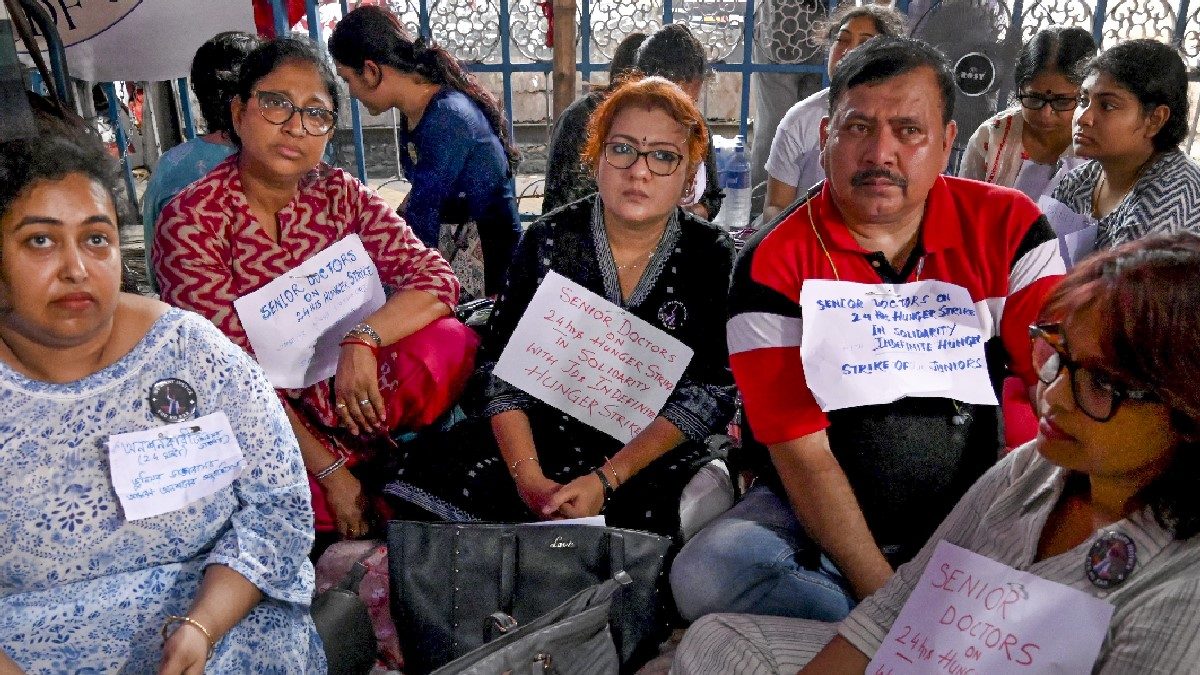The recent protest by junior doctors in West Bengal over the tragic rape and murder of their colleague at RG Kar Medical College has sparked a chain of events, including a wave of “mass resignations” by senior doctors in support of their juniors’ demands. However, the West Bengal government has dismissed these resignations, stating they lack legal validity.
Symbolic Solidarity and Legal Nuance
The mass resignations, while presented as a collective show of solidarity with the protesting junior doctors, have been deemed insufficient in terms of legal standing. The West Bengal government argues that these “mass resignations” lack the formal and individualistic submission required under service rules. The government emphasizes that individual, personally signed resignations submitted directly to the employer are the only legally acceptable forms of resignation.
Individual vs. Collective Resignations
The core of the issue lies in the difference between individual and collective resignations. While the spirit of solidarity motivating the mass resignations is commendable, the legal framework for resignations necessitates individual submissions. Each resignation must be personally signed by the individual employee and submitted directly to the employer. The current “mass resignation” letters, though signed collectively, lack this crucial individualistic element and, as per the government’s statement, fall short of the legal requirements.
Focus on Legality Over Sentiment
The government’s stance focuses on the legal intricacies and emphasizes that these collective resignations lack the individual specificity required for legal validity. This focus on legal compliance might appear at odds with the emotional and ethical implications of the doctors’ collective stance against the injustices faced by their colleagues. However, the government insists on upholding the legal procedures, maintaining a stance that prioritizes regulatory guidelines even amidst a highly sensitive situation.
Maintaining Healthcare Services During Crisis
The West Bengal government, while emphasizing the legal inadequacy of the mass resignations, has assured the public that healthcare services at state-run hospitals remain unaffected. This reassurance aims to alleviate public concern regarding potential disruption in healthcare during the ongoing protest and the accompanying mass resignations. Senior doctors, despite submitting the symbolic resignation letters, have affirmed their commitment to maintaining medical services, ensuring minimal disruption during Durga Puja celebrations.
Impact on Public Health
The government’s assertion that healthcare services are not being disrupted highlights the critical need for continuity in medical care during the ongoing crisis. While the mass resignations serve as a powerful symbolic gesture, the potential disruption of essential healthcare services poses a grave concern. Maintaining healthcare operations in the face of this turmoil is of paramount importance.
Balancing Rights and Responsibilities
The situation showcases a delicate balancing act between the right of doctors to voice their concerns and the crucial responsibility to provide uninterrupted healthcare services to the public. While the government emphasizes the legal technicalities of resignation procedures, it’s important to acknowledge the emotional and ethical complexities driving the doctors’ protest. Finding a solution that addresses the legitimate grievances of junior doctors while ensuring the uninterrupted delivery of essential healthcare services remains a key challenge.
Take Away Points
- The West Bengal government has rejected “mass resignations” submitted by senior doctors in support of their protesting junior colleagues.
- The government considers these resignations legally invalid due to their collective nature, as they do not adhere to the requirement for individual, personally signed resignations submitted directly to the employer.
- Senior doctors have affirmed their commitment to continuing medical services during the ongoing protest.
- The government emphasizes the continued provision of uninterrupted healthcare services to the public.
- This situation underscores the critical need for addressing the grievances of junior doctors while ensuring uninterrupted access to essential healthcare services.




